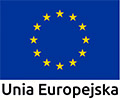Traditionally, on the first Saturday of September, patriotic and religious celebrations took place on the premises of the former Penal Labour Camp in Treblinka. The 80th anniversary of the outbreak of World War II was celebrated, and numerous participants paid tribute to the victims of the Penal Labour Camp.
Treblinka I Penal Labour Camp was created by the Germans in the summer of 1941 near the gravel pit. At the beginning of the camp’s operation, civilians from the Sokołów County were imprisoned there, then they were residents of the eastern counties of the entire Warsaw District. Staying in the camp, in conditions of hunger, terror and slave labour, often ended in death. It is estimated that a total of about 20,000 prisoners were detained in the Penal Labor Camp, of which about 10,000 died or were murdered. The camp was liquidated at the end of July 1944.
The ceremonies began at the Gravel Pit – the place of slave labour of Treblinka I prisoners – the Way of the Cross led by Fr. Józef Poskrobko, parson of the parish in Prostyń. During the Way of the Cross, the priest emphasized how tragic the fate of the prisoners and victims of the Treblinka I Penal Labour Camp was. He also reminded the story of two sisters who came here – Barbara and Hania Zaleska.
After the Way of the Cross and welcoming all guests by the Director of the Treblinka Museum, Dr. Edward Kopówka, Fr. Józef Poskrobko celebrated Mass at the Place of Executions, chaired by His Excellency, Fr. Bishop Senior Tadeusz Pikus.
During the homily, Bishop Poskrobko addressed the following words to participants:
For several centuries, along with the development of civilization and culture, a lot has been said about humanism that would appreciate the dignity of the human person and his unique value. Some creators of this beautiful idea of humanism and their clappers understand it in the spirit of the builders of the Tower of Babel, i.e. in accordance with the so-called anthropocentric humanism. This humanism puts man at the center, not God. There is also theocentric humanism in which God is at the center of everyone’s life. As Saint Teresa the Great said: “God alone is enough for me” – God is in the center. We often talk about humanism, but about anthropocentric humanism, where man stands in the place of God and he is the measure of everything that exists. He invents the law, enforces it. So the one who is stronger and more cunning, will dominate. We know from history how history shaped by such people proceeded. We see the effects of this ideology in the place where we are. The Second World War was one of the greatest human defeats and the tragedy of humanity. Two atheistic, anti-Christian ideologies – national Nazism and international communism – rejected God and the fifth commandment of his Decalogue, and this commandment is “do not kill.” Today in the Treblinka forest we recall the anniversary of the ordeal, passion and death of hundreds of thousands of lives. By nature, this beautiful place conceals the memory of shameful human actions. Treblinka as a place of extermination is part of the history of World War II. The motive of this year’s celebration of the outbreak of this war were the words: “memory and warning.” These words demand the memory of victims from all of us, but at the same time warn us never to allow such terrible, genocidal crimes again. A present-day German politician, after visiting Auschwitz and after what he saw there, stated: “This visit makes us immune to all racism and chauvinism.” May we be able to learn this way from history.
After the Holy Mass, the Director of the Treblinka Museum, Dr. Edward Kopówka, read a letter from prof. dr hab. Piotr Gliński, Minister of Culture and National Heritage:
Today, we are worshiping human beings by opposing to the objectification of man by the Nazi apparatus of power. Each of us is a separate entity endowed with a unique set of features, sensations and experiences. Inherent human dignity! We want to restore this dignity to Treblinka prisoners and victims.
The honorary guests of the celebrations commemorating the victims of Treblinka I Penal Labour Camp were former prisoners – Zygmunt Chłopek and Jan Zawadzki, as well as family and representatives of former Treblinka I prisoners.
The celebrations were attended by representatives of state and local authorities and institutions:
– Judyta Rozbicka-Prokopowicz – plenipotentiary of the Voivode of Mazovia;
– Józef Rostkowski – deputy head of the Ostrów County;
– Jan Słomiak – mayor of the city and commune of Kosów Lacki;
– Bożena Kordek – head of the Małkinia Górna commune;
– Marek Renik – deputy head of the Węgrów County;
– Krzysztof Bukowski – IPN prosecutor, IPN delegation in Koszalin;
– Joanna Gierczyńska – head of the Pawiak Prison Museum;
– prof. Zofia Chyra-Rolicz – member of the Treblinka Museum Council;
– representatives of the Home Army soldiers in Kosów Lacki and Sokołów Podlaski;
– representatives of the Union of Interned and Persecuted in the People’s Republic of Poland.
The ceremonies also included representatives from schools and other institutions:
– Cardinal Stefan Wyszyński’s Primary School from Kosów Lacki, headed by director Agnieszka Ajdys and deputy director Anna Maliszewska;
– Cardinal Stefan Wyszyński’s Primary School from Kiełczew, headed by Barbara Sobieska;
– High School and Branch School as well as representatives from the uniformed class from Kosów Lacki, headed by director Hanna Przesmycka;
– Stanisław Staszic’s School Complex from Małkinia Górna, headed by director Wojciech Hadała;
– Janusz Korczak’s Primary School from Jasienica headed by director Edward Urbanowski;
– Siberian Deportees’ Primary School from Kalinów, led by Bogdan Jabłonka;
– John Paul II’s Municipal School Complex from Prostyń headed by director Ewa Szymanik;
– John Paul II’s Special School Complex in Sokołów Podlaski;
– Aggregated Salesian Schools headed by priest director Dariusz Matuszyński;
– Local Government Kindergarten in Małkinia Górna, headed by director Zofia Grzymkowska;
– Primary School No. 1 from Małkinia Górna, headed by Wanda Wilczyńska;
– Primary School No. 2 from Małkinia Górna with teachers;
– Primary School in Glina headed by Ewa Banaszuk;
– Aleksander Kamiński’s 40. Scout team from the Primary School in Kosów Lacki, headed by Hanna Ratyńska and Małgorzata Wojtczuk;
– Janusz Korczak’s ZHP troops, led by scoutmaster Barbara Kozłowska;
– 14. Scout Team “Sokoły” from Prostyń and Małkinia Górna, headed by under-captain Ewa Roguska;
– 45. Scout Team “Cienie” led by scoutmaster Anna Chmiel;
– 3. Lad’s troop “Dzielne Plastusie”;
– 33. “Inka” Scout Team “Cienie”;
– 13. Scout Team from Sokołów Podlaski;
– 92. Women’s Scout Team NS Forest Spirits from Sokołów Podlaski;
– 93. Men’s Scout Team NS Forest Spirits from Sokołów Podlaski;
– The Headquarters of the Mazovian Banner of the ZHP, headed by the deputy commander, podharcmistrz Maciej Robak
– soldiers from the Military Unit of the 22nd Military Cartographic Center in Komorów, headed by the commander of the Ostrów Mazowiecka Garrison Colonel Jan Gliński;
– a bicycle group from the Sadowne Senior Club;
– representatives of the Fire Brigade and Police;
– representatives of the Municipal Library in Sokołów Podlaski;
and numerous residents from the surrounding towns.
After the Holy Mass, an artistic part was performed by: Ania Borowa, Mateusz Mazurek, Szymon Mariański and Mariusz Wujk. At the end of the ceremony, the guests gathered in front of the monument to the victims of Treblinka Penal Labour Camp I to put flowers and candles.
We would like to thank everyone present for coming to the ceremony.





